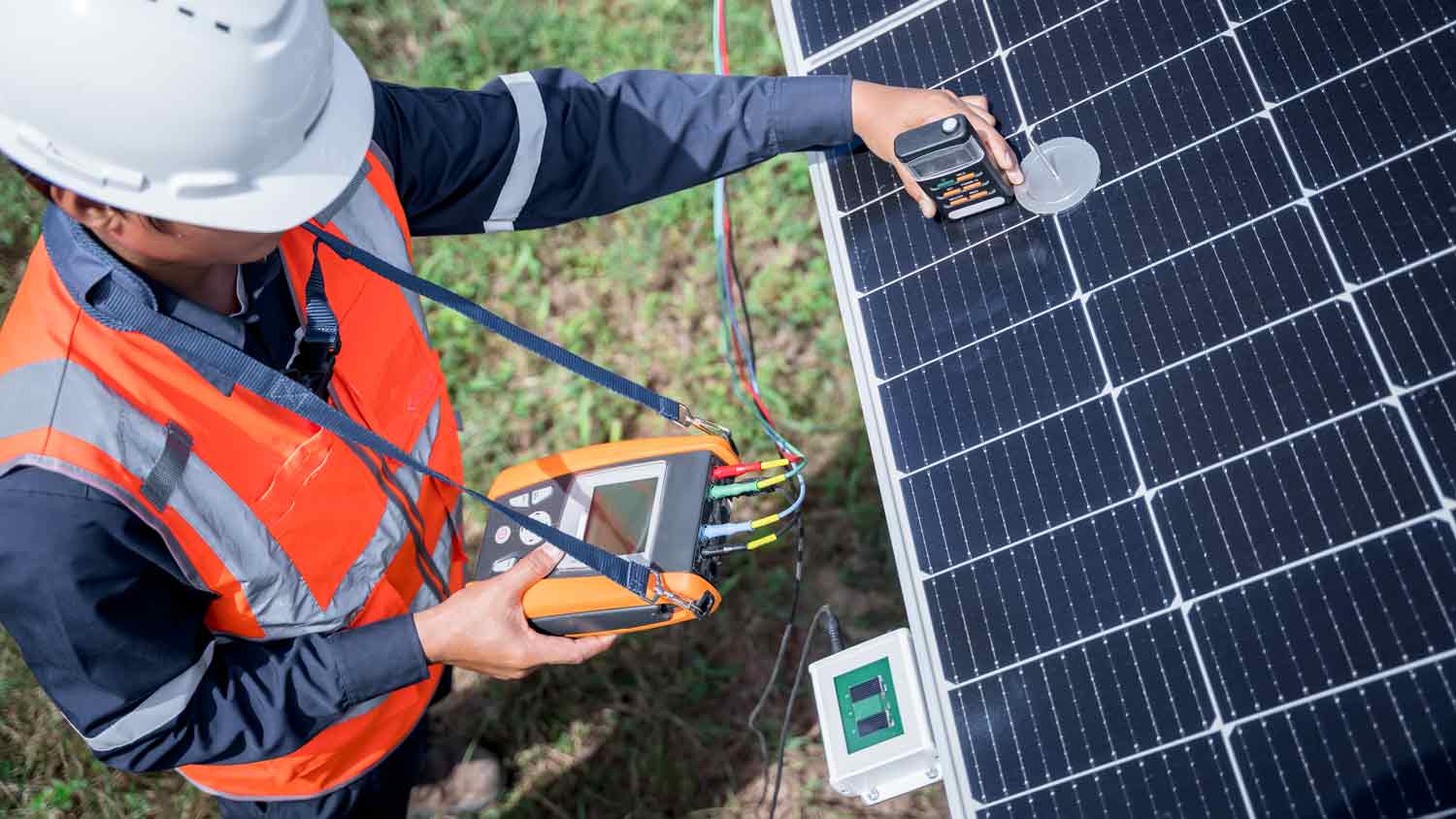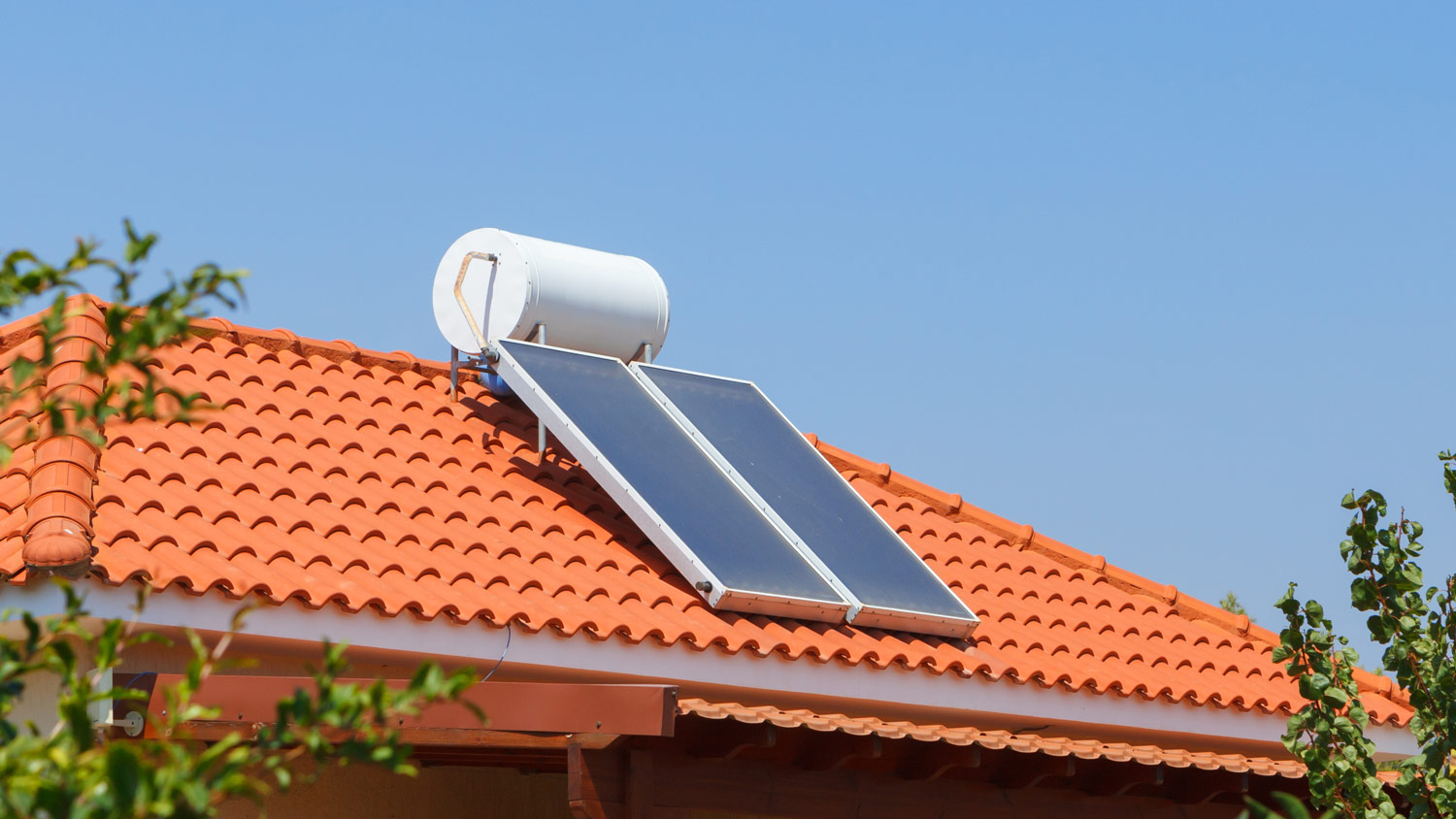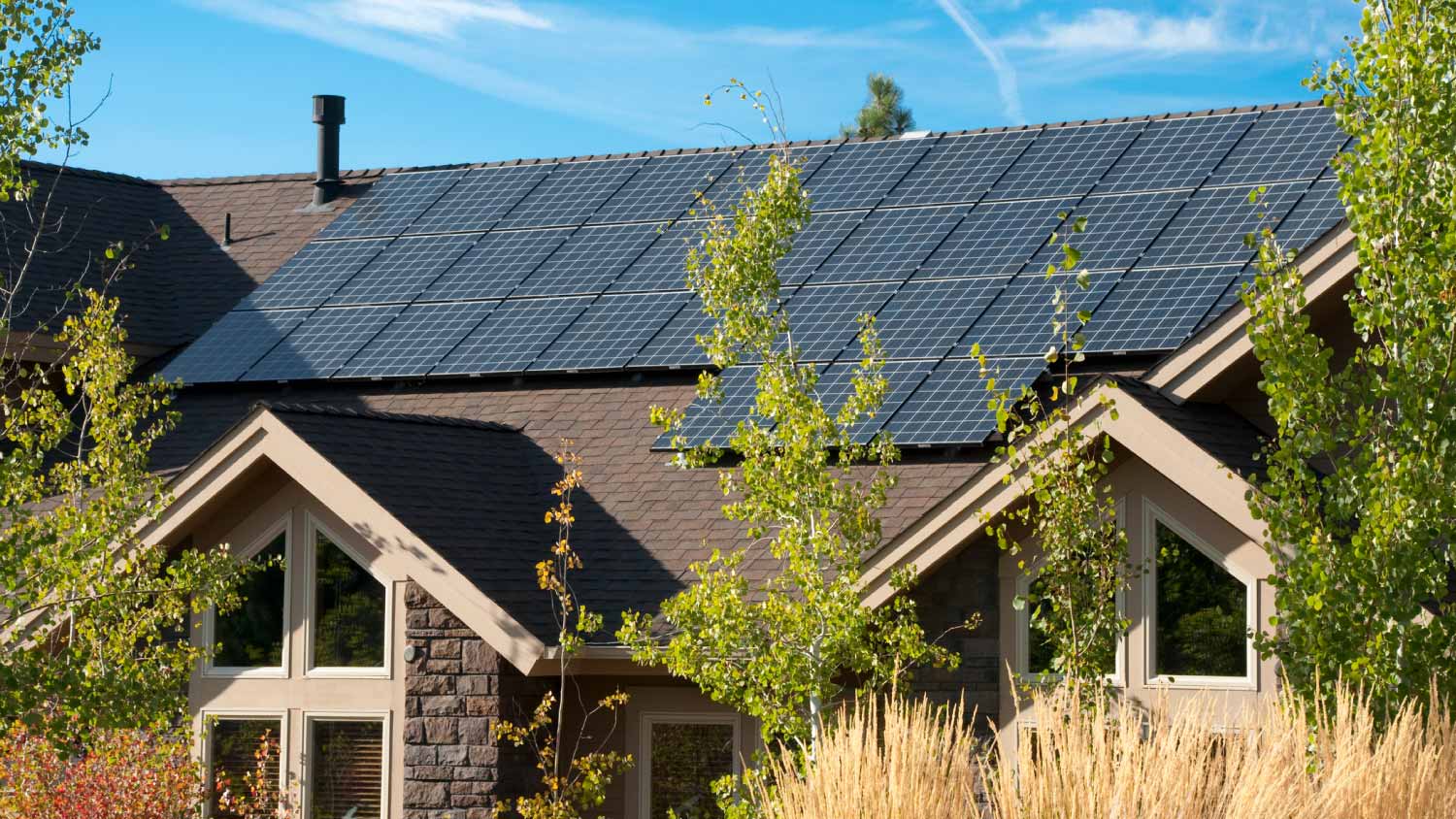
Discover the average solar panel installation cost, key price factors, and expert tips to help you budget for your solar project.
Save the sunlight and use it later


Solar batteries allow you to store excess energy from your solar panels for later use.
They allow you to have more energy independence and not rely on the grid for additional energy needs.
Installing solar batteries adds an average of $10,000 to the cost of a solar panel system, and you might need multiple batteries.
Solar batteries require less maintenance and ongoing costs and are much quieter than a generator.
If you have a solar panel system for your home, consider adding solar batteries to store excess energy for later use. Solar battery storage has benefits and disadvantages, such as gaining more energy independence. However, solar batteries are also a costly addition to your solar power system, and you may need more than one to power your home. Keep reading as we dig into more of the pros and cons of solar battery storage so you can make the best choice for your home and budget.
Solar batteries work by capturing excess energy produced by the solar panel system. After solar panels capture the sun’s radiation, they send the energy to a battery that stores it for later use. When you need to power your home, you can draw from the energy stored in the batteries, allowing you to use solar energy during cloudy days or at night when the solar panels aren’t producing enough energy.
| Pros of Solar Batteries | Cons of Solar Batteries |
|---|---|
| Lower utility bills | Higher cost |
| More energy independence | May need multiple batteries |
| Powers home at night or during outages | Adds components to the system |
Solar batteries offer advantages such as lower utility bills, greater energy independence, and the ability to power your house at night and during power outages.
The more solar energy you can produce and use with your solar panel and battery system, the lower your energy bills will be. Installing a solar battery system that stores excess energy means you won’t have to use—and pay—for energy from the grid during low solar production times, like early morning or overnight, and during cloudy and snowy weather.
You can also use your stored energy during time-of-use rates to save money. These are times of the day during which energy costs are high. If you have a grid-tied system with a net metering plan, you can still sell excess energy back to the grid after your solar battery storage is full.
If you have a solar panel system without solar batteries, you might not generate enough electricity to meet all of your energy needs. In which case, you can pull energy from the grid when your panels aren’t producing enough. However, solar batteries allow you to be more independent from the grid by reducing the amount of energy you use from it.
With enough batteries, you can build a stand-alone solar power system, which isn’t connected to the grid at all.
With solar batteries, you can access stored energy to power your home at night or on cloudy days when the panels aren’t getting enough sun exposure for adequate energy production.
In the event of a power outage, a grid-tied system will automatically shut down to stop the flow of electricity—even solar-generated electricity—to protect utility workers who are repairing the lines. If you have a solar battery set up to store excess energy, you can tap into that storage during a power outage, so your power isn’t interrupted.

Solar batteries add an expense to an already costly solar panel system, and you may need multiple batteries to store enough power to keep your home running. And even though solar batteries don’t need much maintenance, they’re another component that will eventually need replacing.
Solar batteries will increase the overall cost of your solar panel system. On average, homeowners spend about $10,000 on solar batteries, but the actual cost depends on the size and type of battery, how many you need, the labor to install it, and the amount of electrical wiring needed. Get estimates from solar panel installers so you can budget accordingly.
One battery may not be enough depending on the type of solar battery, your power needs, and which household items you’ll want to power. If so, you’ll have to determine how many solar batteries it takes to power your house and purchase and install multiple batteries, increasing the total cost.
While solar batteries don’t require much maintenance other than checking to ensure they’re working properly, you’re still adding a component to your solar panel system. When there are more components in a system, there are more chances that something could break down or fail.

If you’re deciding between solar batteries versus generators for your backup power solution, a generator will be less expensive but have higher ongoing fuel and maintenance costs. Generators run off of propane or another type of fossil fuel to power your home in the event of a power outage. You can purchase a stand-alone generator and plug appliances into it directly or install a whole-home generator that will kick on when the power goes out.
Purchasing and installing a solar battery costs around $10,000, but when you account for the solar panel system that goes with it, the cost can shoot up to around $40,000. In comparison, a generator costs between $1,500 and $6,000 for a stand-alone model or between $4,500 and $8,000 for a whole-home standby generator.
If you already have a solar panel system for your home, you could benefit from installing solar batteries. They allow you more independence from the grid and can lower your utility bills even more. But before you take the leap, talk with a solar panel installer near you to get a cost estimate and ensure they fit your budget.
From average costs to expert advice, get all the answers you need to get your job done.

Discover the average solar panel installation cost, key price factors, and expert tips to help you budget for your solar project.

Discover the average solar panel inspection cost, what impacts pricing, and how to save. Get expert tips to keep your solar system efficient and safe.

Get a clear estimate for solar water heater repair cost. Learn what impacts pricing and how to budget for your solar water heater repair.

Solar panels are both energy- and cost-saving additions to your home. Use this guide to learn some solar panel cleaning tips to keep them operating efficiently.

What happens to solar power when the batteries are full? We’re here to answer that question and give you tips on what to do with the excess.

Learn everything you need to know about solar panel maintenance to optimize your system’s performance and efficiency with these valuable tips.